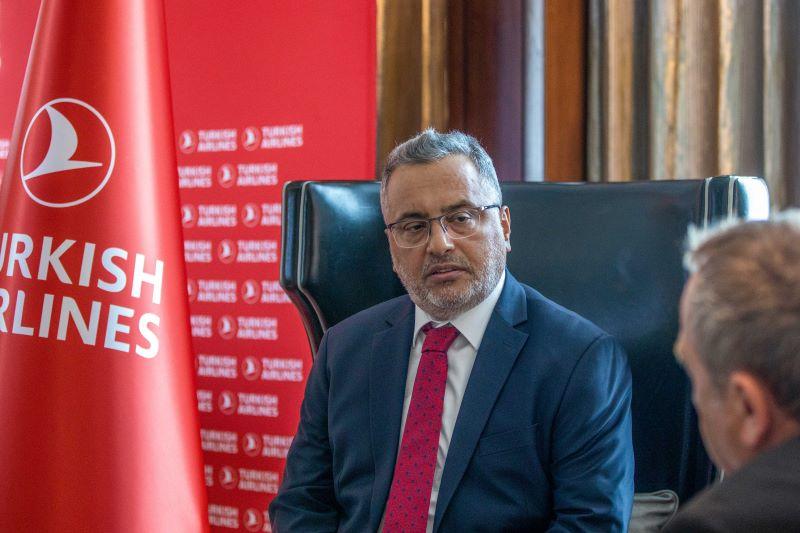
ISTANBUL—Turkish Airlines is working on plans to establish MRO subsidiaries outside Turkey.
“We are working on that with investors, for example in Belgrade, Serbia,” Turkish Airlines Chairman Ahmet Bolat told Aviation Daily in an exclusive interview on the sidelines of IATA AGM in Istanbul on June 6.
“We will make a decision accordingly,” he said. “We are always open to opportunities. We evaluate the future prospect and so on. That’s the important thing."
Bolat says labor costs are decreasing in some parts of Southeastern Europe and therefore he sees it as a good area to invest in.
Aviation Daily understands that Air Serbia is looking for an MRO solution for its base at Belgrade Nicola Tesla airport, as the fleet is growing very fast and MRO bottlenecks are occurring at local provider JAT Tehnika. But also nations further afield like Kazakhstan and Indonesia are logical options for Turkish Technic given Turkish Airlines' broad global network.
Bolat rules out a possible MRO joint venture that would include aircraft engine maintenance. “That will be not a part of it. It requires network [in terms of spare parts etc.]. You cannot build an engine shop for only the engine you operate. You have to be backed up by other carriers [third-party customers] that have the same engines.”
Commenting on costs, Bolat said that right now a one-bay widebody aircraft hangar costs around $1.5 million annually.
“And a major factor in MRO is about time and man hours,” he said. To keep costs low, it is less expensive if you can repair aircraft parts, engines and components, he said. “Then it is possible to make value, and then you can make profit from... an aircraft hangar.”
For Turkish Airlines, which will operate a fleet of 435 aircraft by the end of 2023, there is enough MRO capacity. Turkish Technic has maintenance facilities at Istanbul Airport, Istanbul Sabiha Gokcen as well as Istanbul Ataturk Airport.
Turkish Technic also handles several third-party customers. “For example, we work also for Emirates,” Bolat said. “Five 777s have been already handled by Turkish Technic and a further 17 might be added soon.”
Bolat is unsatisfied with how engine providers are handling the shortage of spare parts for its airline customers, especially for Airbus A320neo fleets.
“The engine providers have to solve this,” Bolat added. “As an airline, you can basically maintain the engine anywhere. But if you don’t produce the parts, and we do not get them, that is the main issue.”
Turkish Airlines’ new-generation Airbus A350 and Boeing 787 are not effected by the current engine challenges, but several A320neos are grounded. “We are talking with the engine providers to ensure that this is not going to last long,” Bolat said.
When asked if the delay of an order for 600 aircraft by two months is impacting the company, Bolat said, “Of course it is affecting us and delays our growth plan.”
With the upcoming order, Turkish Airlines plans to operate a fleet of over 800 aircraft by 2033.

